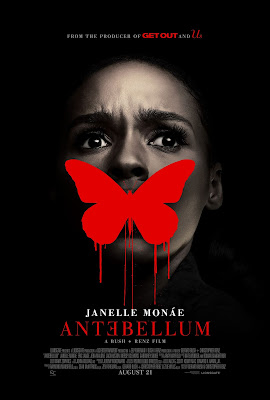The title itself comes from the fear expressed by the FBI's J. Edgar Hoover of Mr. Hampton's becoming the new Black Messiah, once Martin Luther King, Jr., had been assassinated. Judas refers to the Biblical betrayer -- here a low-life, con-man/thief named William O'Neal, blackmailed into infiltrating and spying on Hampton and the Panthers
While the actions of Hoover and the police are digusting and thoroughly racist, King (pictured at left) and Berson don't try to sugar-coat the fact that the Panthers had to do some bad shit, too. Yet the amount of this the Panthers perpetrated, together with their reasons for doing it, do not even begin to approach that of "law enforcement."Because the filmmaking and the writing is so direct and real -- as well as pointed and very political (I did not realize nor remember how anti-Capitalism Hampton was), the movie plows ahead with a speed and energy that belies its two-hour-plus running time. It has taken more than a half century for even a portion of the American populace to catch up with Hampton's ideas, thanks to the continued racist behavior of the police and FBI, along with the continual anti-Socialist message put out by our ever-more corporate controlled mainstream media. Now, finally, this is being fought against via the Black Lives Matter and "Occupy" movements, minimal media (subscribe to The Baffler) and a handful of progressive politicians.
King's movie tells its story via extremely strong performances from its leading actors: Daniel Kaluuya (above) as Hampton, LaKeith Stanfield (at left, two photos below) as O'Neal, and Dominique Fishback (below) as Hampton's poet, guiding light and eventual lover -- with Jesse Plemons (at right, two photos below) doing his usual excellent work as the blackmailing FBI Agent, and Martin Sheen as certainly the nastiest, deservedly so, J. Edgar we've so far seen.
Considering what the USA was fed by its mainstream media and powers-that-were back in the day, how salutary and necessarily disturbing it is to finally have Hampton's story told this close to truly -- and this well. Judas and the Black Messiah is also the first must-see of the so-far much-vaunted Warner Brothers movies to be released theatrically and via HBO Max.
The Witches is a lot of fun, but Wonder Woman 1984 is utter crap, The Little Things perhaps the stupidest would-be thriller/serial killer movie ever foisted on the public, and Locked Down much better in its first hour than its second. Let's hope that the up-next Tom and Jerry offers some good, entertaining fun.
Meanwhile, however you can view it, make a bee-line for Judas and the Black Messiah, which hit streaming this past week and will remain in theaters for some time to come, I hope.

























































